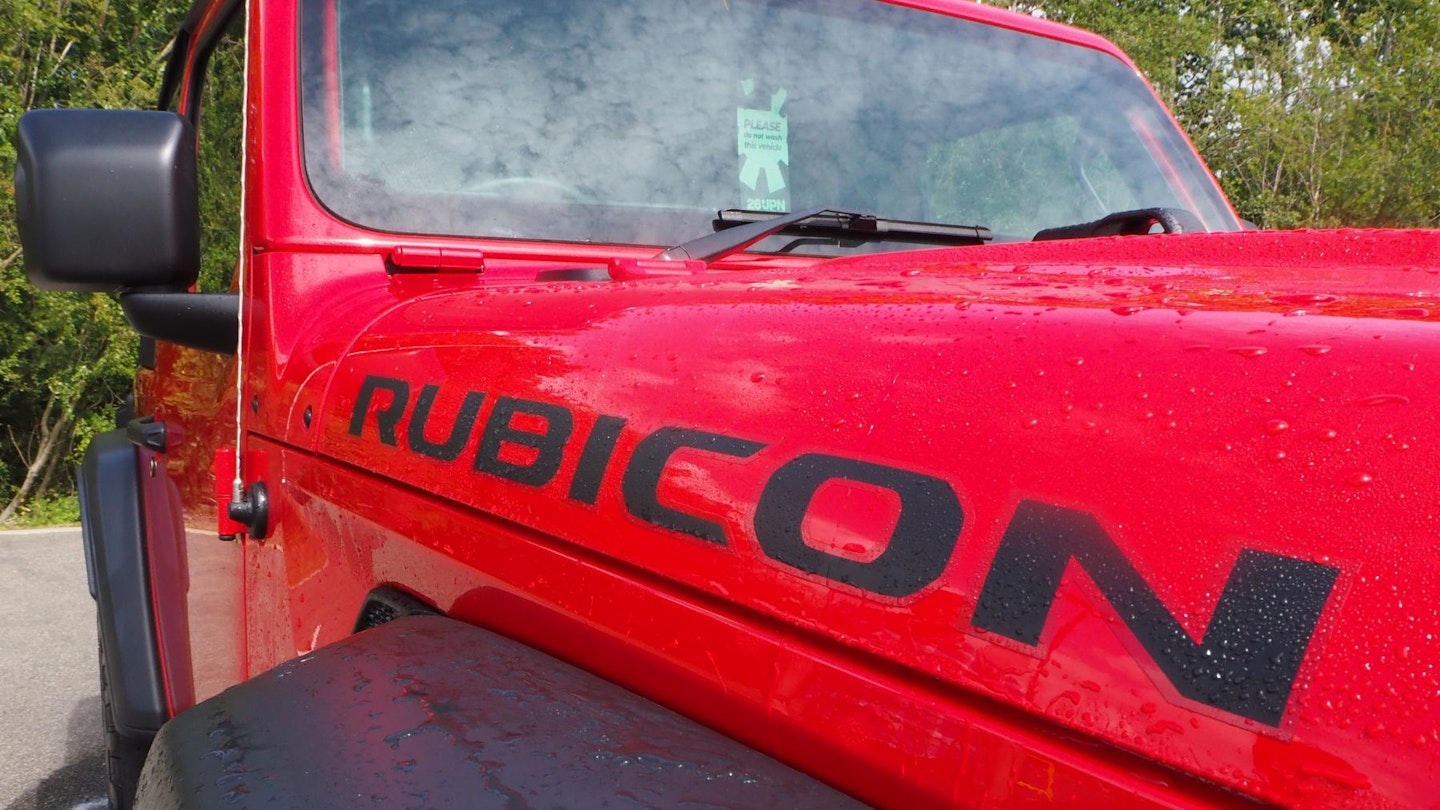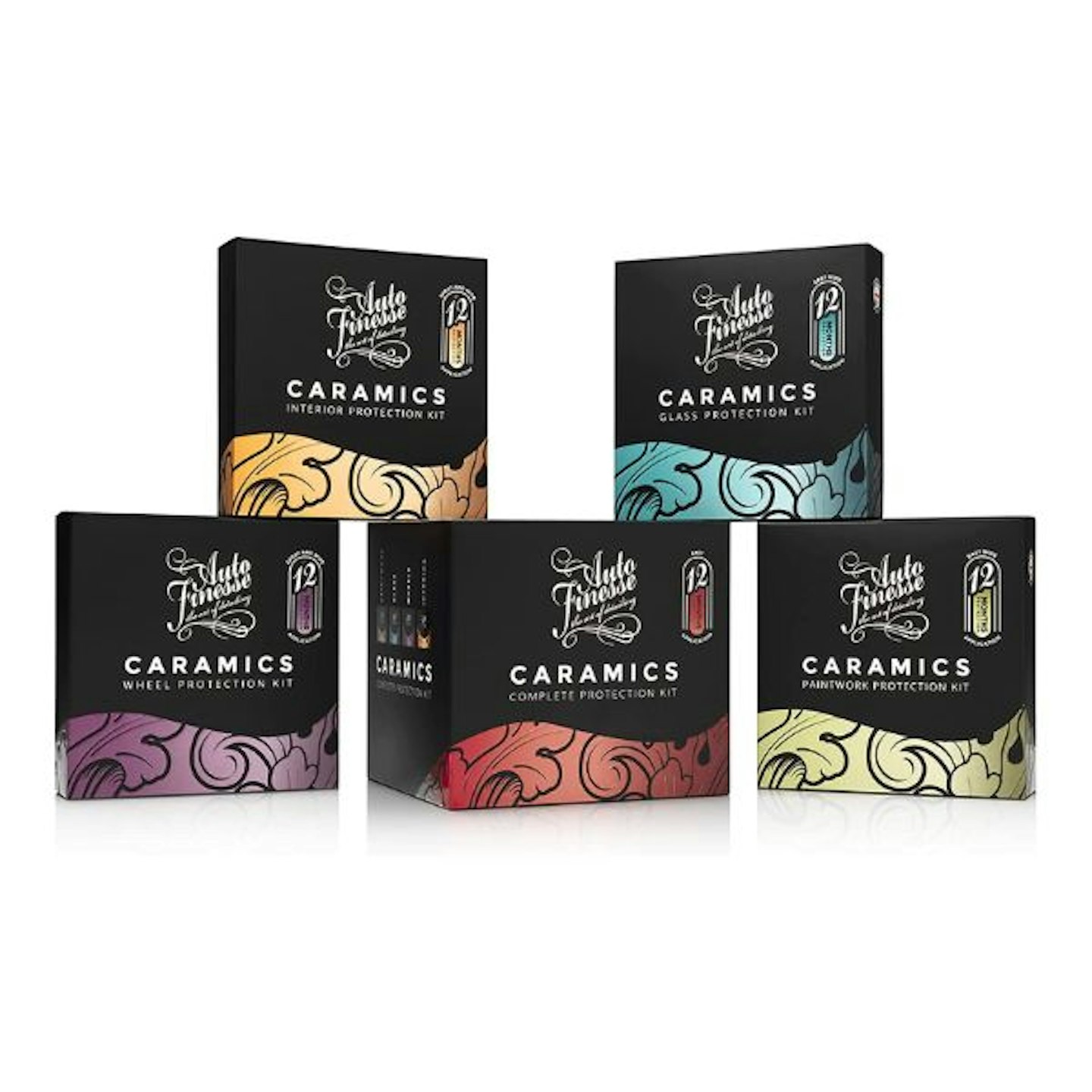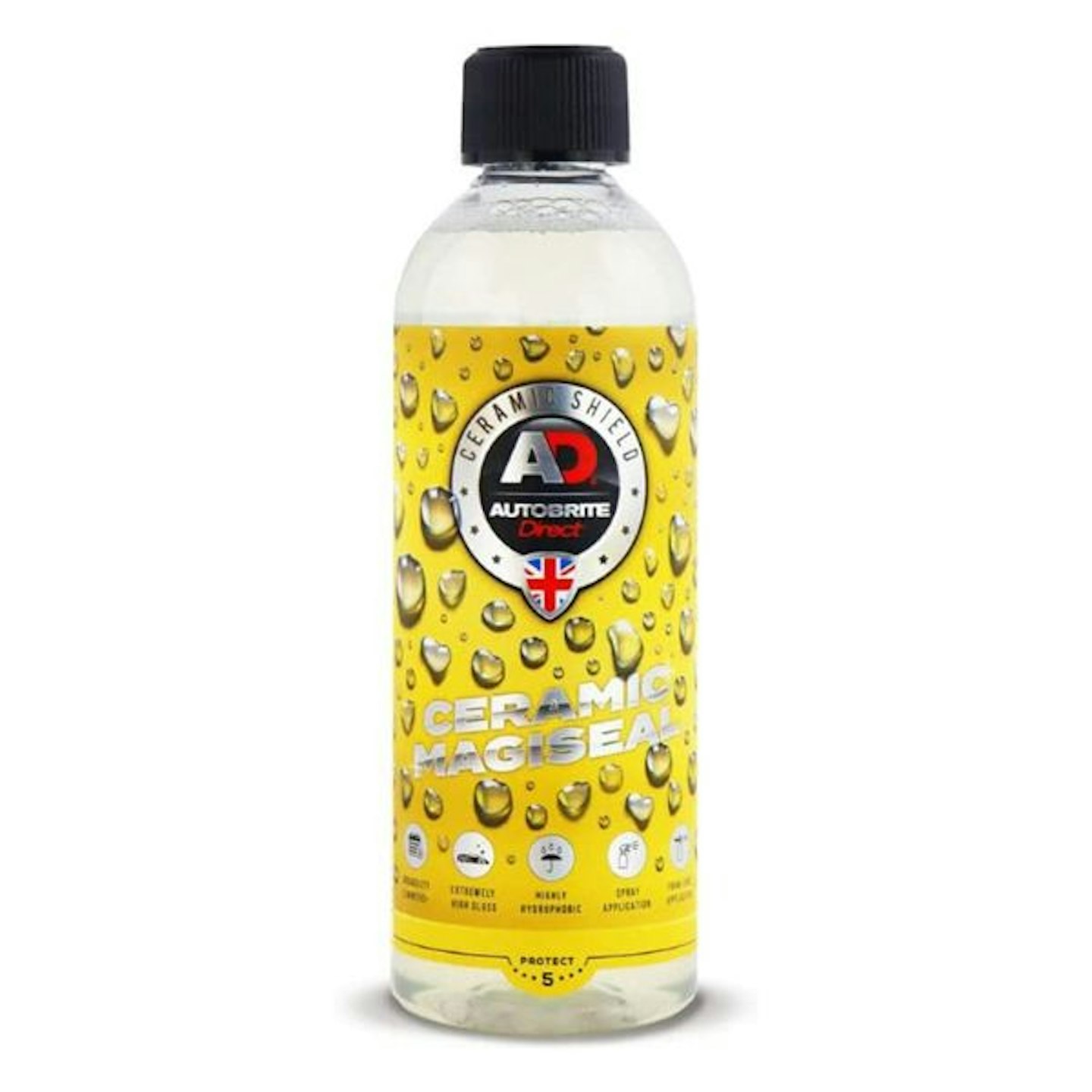Nothing has rewritten car protection quite like the introduction of ceramic coatings for cars. This evolution in car care makes use of liquid silicon dioxide (SiO2) polymers (long chains of molecules), also known as silica and found in nature as quartz. Applied to a car’s surface the liquid bonds firmly to it, which adds a layer of protection. You can think of a ceramic coating as an upgraded form of car wax.
It's the durability that gets the headlines when it comes to ceramic protection, with even the weakest formulations promising months of protection. More expensive, meticulously applied options can promise years of paint protection.
The protection is similar to that of standard car wax, providing a suit of armour against punishing UV, acidic substances such as bird poo, and excellent hydrophobic properties, making cleaning a ceramic-protected car simple.
The best ceramic coatings shortlist
Editor's choice: Gtechniq EXO V4 - Buy now from Amazon
Best ceramic wax: Meguiar's Hybrid Ceramic Liquid Car Wax - Buy now from Amazon
Best ceramic sealant: Gtechniq C2 V3 Ceramic Sealant - Buy now from Amazon
There are three main types of ceramic protection; ceramic coatings, ceramic-infused waxes and ceramic spray sealants. We'll be breaking down all three with the best examples, and why you'd select each one.
The best ceramic coatings for cars
Editor's choice
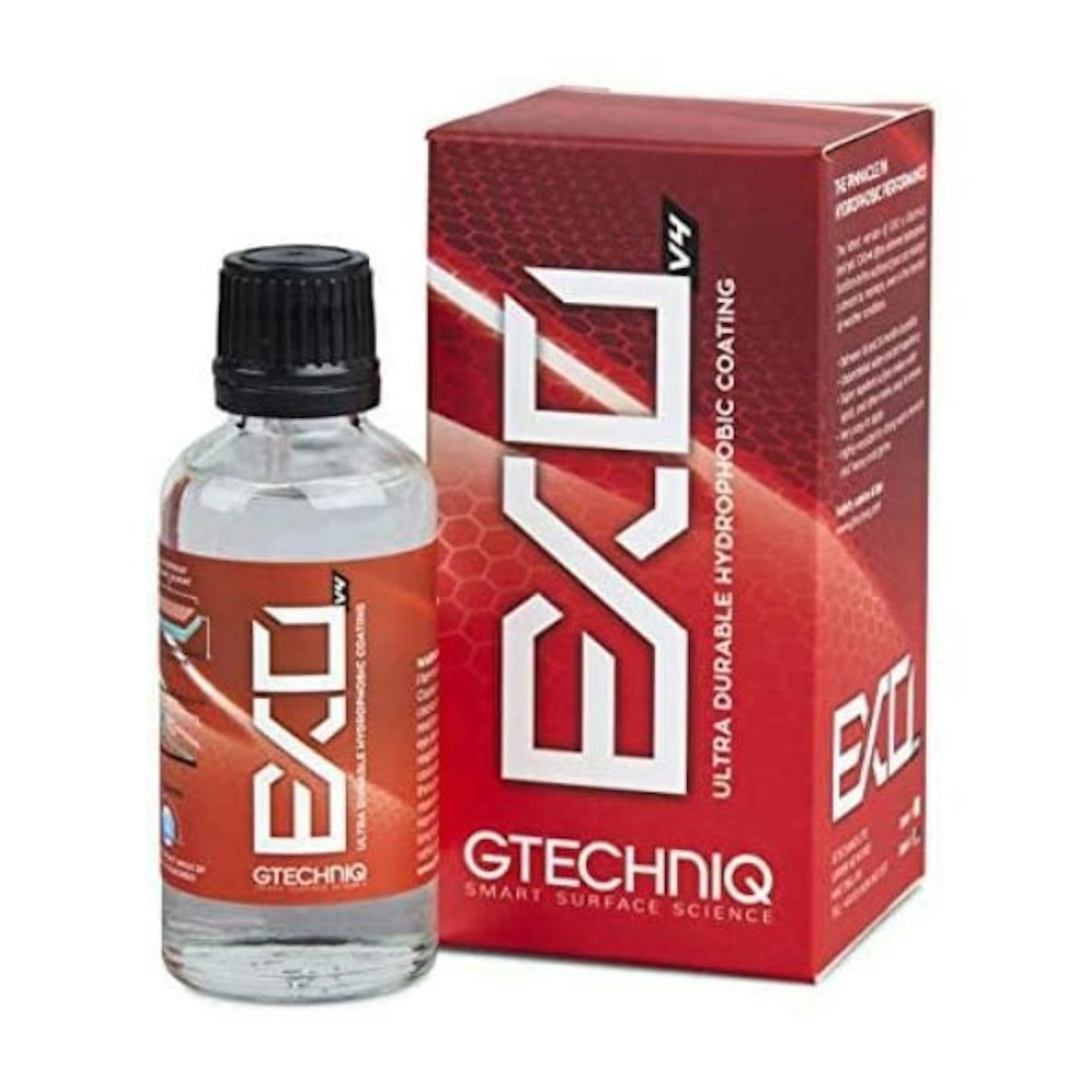
For proper ceramic coatings you can apply yourself, anything Gtechniq will deliver stunning results, with EXO V4 our top choice. Designed to provide a hard and durable layer against chemicals and staining (like water spots), this tiny vial of product will deliver excellent paint protection for up to two years from a single application. After cleaning and wiping the panels of your car, EXO V4 is applied via microfibre and left to cure and chemically bond to the car for 12 hours. Alongside the protective qualities, expect excellent hydrophobicity and a beautiful deep gloss.
Pros
- Incredibly durable
- Reasonably straightforward to apply
Cons
- Needs to cure for 12 hours
The best ceramic coating for beginners
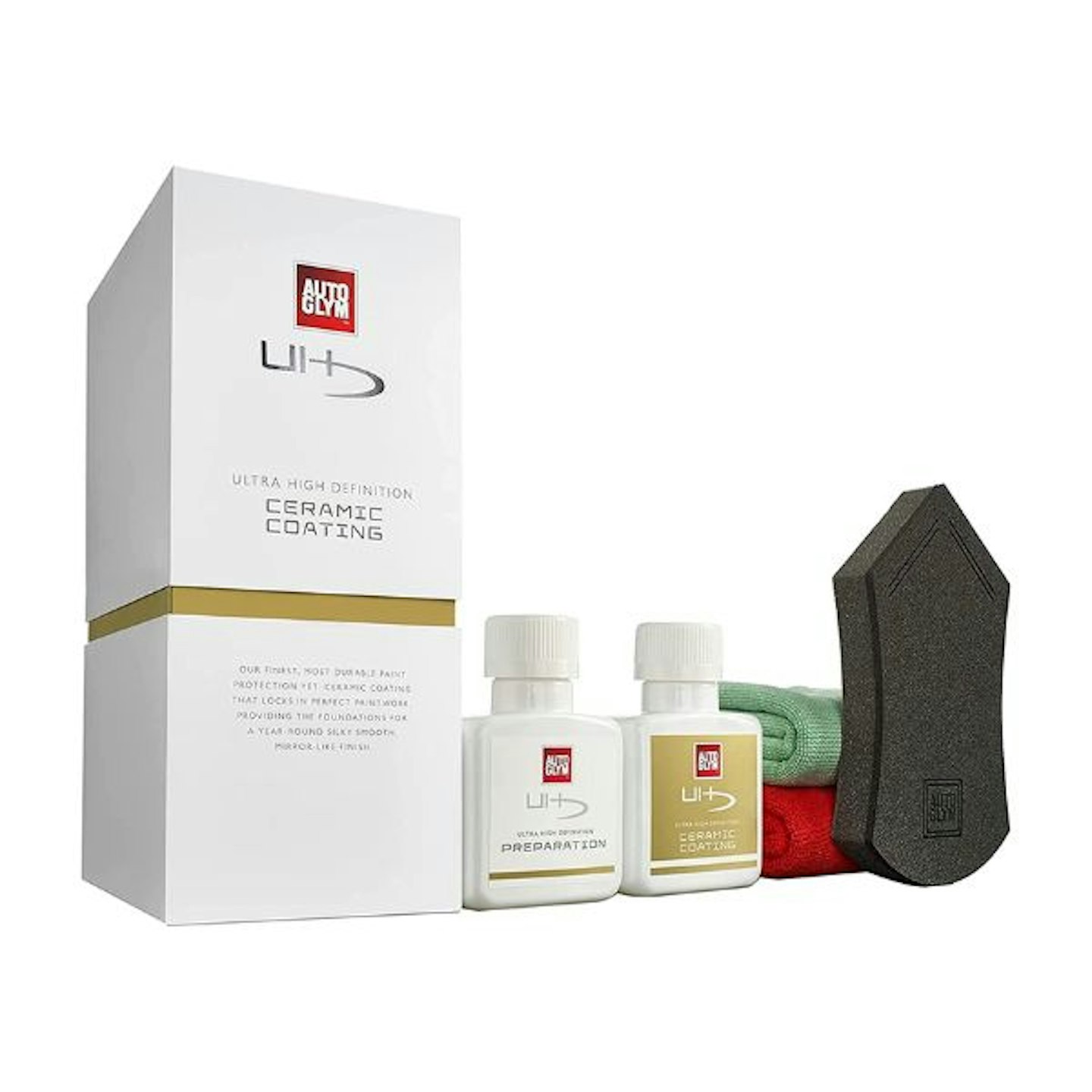
Offering up to a year's protection, Autoglym Ultra High Definition Ceramic Coating may not be as durable, but it is still a top option for paint protection. It will deliver a touch layer of protection that bonds to the paintwork and contribute to a deep paint gloss. This complete kit includes panel prep, microfibre towels and an applicator alongside the ceramic coating, which makes it a fantastic choice for a beginner. The process is also simpler, designed to be applied panel by panel and requiring only four hours of curing time.
Pros
- Easier to apply
- Contains all you need
Cons
- Only 12 months of durability
The best ceramic kit for all surfaces
Again offering 12 months of protection, this complete kit from Auto Finesse contains separate, specially-formulated kits to protect paintwork, alloy wheels, glass and even interior surfaces. The wheel, bodywork and glass kits all use ceramic wipes to apply the protective coats, which makes for better convenience. All of these kits promise exceptional water beading and protective properties thanks to the protection bonding to the paintwork. The interior kit meanwhile has anti-dye and water-repellency properties and uses sprays. All kits also include panel prep, gloves and even stickers.
Pros
- Cover all bases
- Really easy to apply
Cons
- Only 12 months of durability
The best ceramic wax
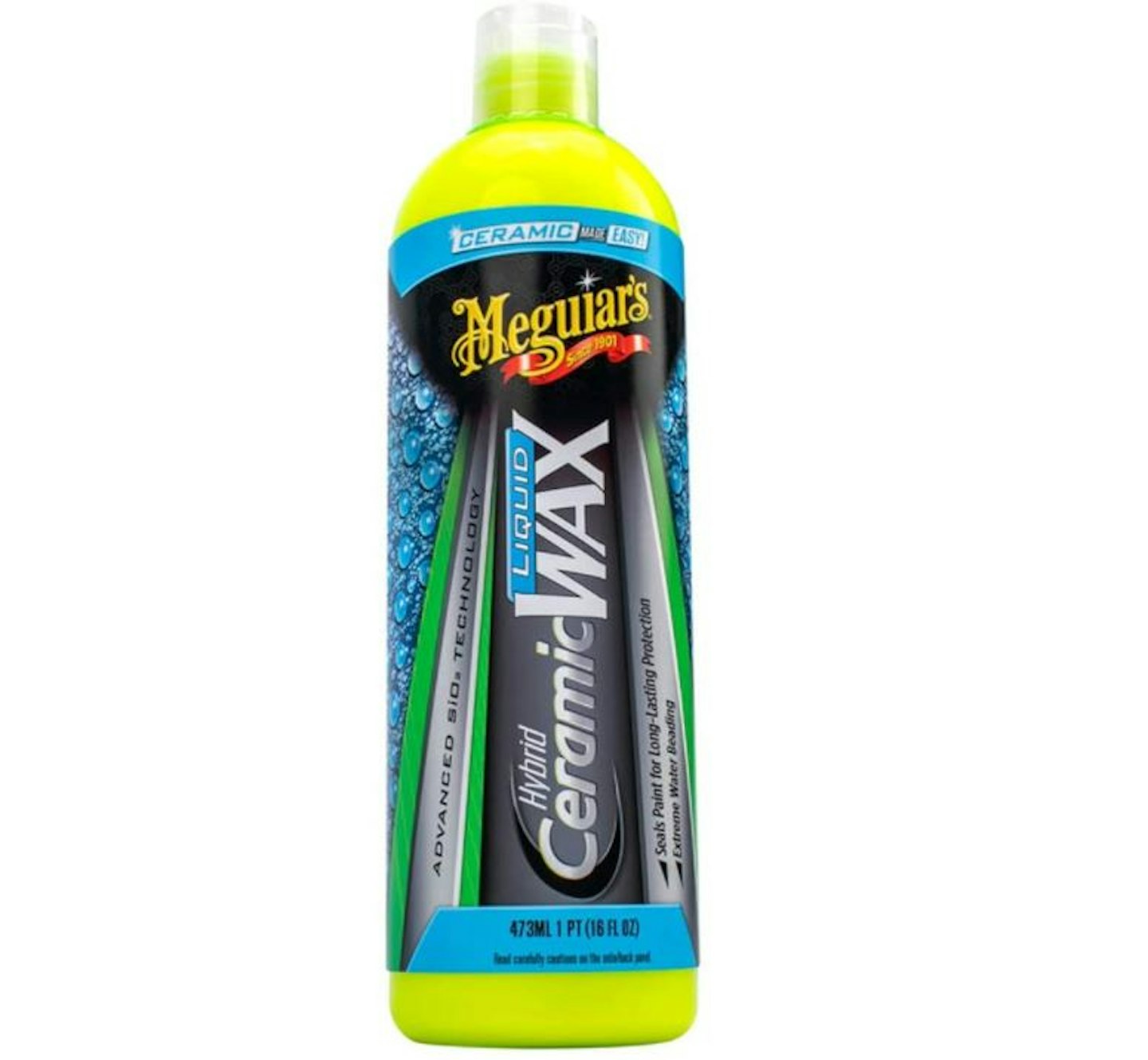
A liquid car wax filled with ceramic technology is an excellent way to ease yourself into the world of ceramic protection. Liquid waxes balance durability and ease of application which make them perfect for beginner detailers. This example from Meguiar's makes use of SiO2 alongside traditional liquid car wax to create a product that seals paintwork and delivers excellent beading. Super easy to apply, this is a satisfying product to use and will also leave a gorgeous shine.
Pros
- Easy to apply
- Very hydrophobic
Cons
- Only six months of durability
The best ceramic sealant
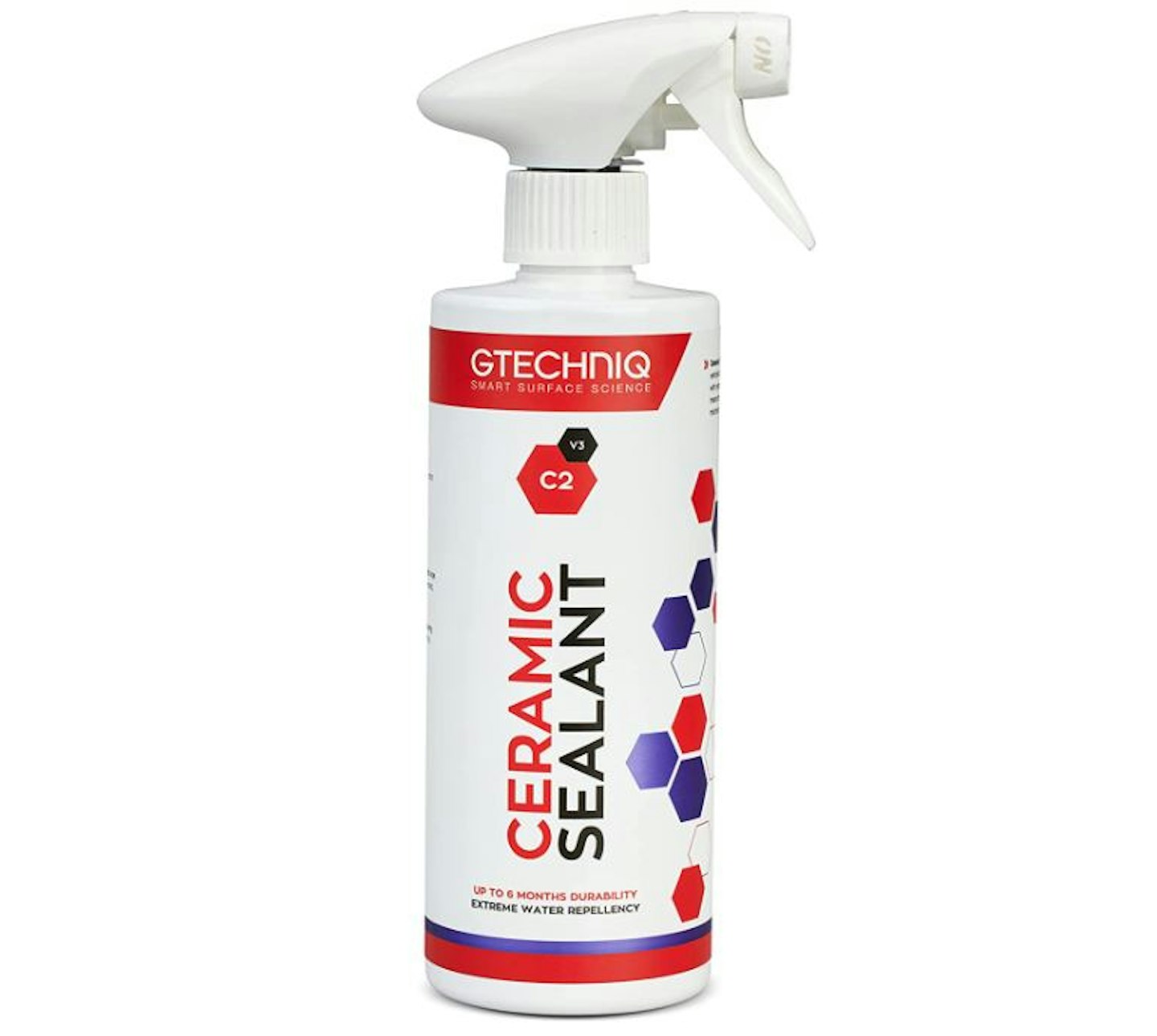
Spray sealants are the easiest forms of protection to apply, requiring nothing more than a clean panel and a microfibre to buff and remove any excess. With ceramic technology advancing at the pace it has been too, ceramic sealants can offer the type of protection that competes with proper waxes. Our favourite example is the Gtechniq C2 as it offers up to six months of hydrophobic protection from a single application, also offering a deep gloss. The included swirl and UV protection only sweeten the deal.
Pros
- Quick to apply
- Six months of dirability
Cons
- Easy to miss spots
The best ceramic sealant for pressure washers
Even easier than a spray nozzle, this ceramic sealant from Autobrite Direct is applied via a pressure washer, much the same as a snow foam would be. Cover a car with Ceramic Magiseal and you'll get up to eight weeks of protection from an application that takes less than a minute, very convenient. Like other ceramic products listed, it'll provide a durable hydrophobic barrier and add some extra gloss to your paint, but without having to buff anything.
Pros
- Effortless application
- Provides excellent gloss too
Cons
- Requires a pressure washer to work
Is a ceramic coating worth it?
As we said, a ceramic coating is like wax. It is an effective protectant. However, it won’t protect against stone chips, or significant scratches, or eliminate the need for washing your car.
If you want protection against stone chips and the like, a paint protection film is what you need. As for washing your car, dirt will still accumulate over time. A ceramic coating will mean less frequent cleaning, but it won’t eliminate it.
A ceramic coating sounds like a specialist option for those who care a lot (possibly even too much) about their car's paintwork. While that's true, the easy application and longevity of some ceramic coatings also make them appealing to the rest of us too because they improve our cars' appearance, level of paint protection, and ease of cleaning.
How to apply ceramic coating
As you will see below there is quite a range of product types. Ceramic products car vary from spot detailers to strong lacquers. It depends on what you want and how much you care about maintaining your car’s appearance. If you like tidy but aren’t fastidious about it, ceramic car shampoo, detailer, or spray will suit you because they are relatively effective and very quick to apply. If you are scrupulous about your car’s appearance, you should consider some of the more serious options.
Naturally, the dedicated ceramic pastes and liquids will be more effective and long-lasting than the sprays and shampoos. Take this into account when you consider which is right for you.
Spray products are easiest. Simply spray onto a the clean surface. Some need subsequent wiping, some get rinsed with water; it depends on the product.
The dedicated ceramic coatings are more time consuming. They need to be applied by hand to a clean, dry panels before buffing. They usually require curing time too, but the benefit is best protection and longevity.
Which ceramic coating product is right for you?
Think about how seriously you take car cleaning. Don't kid yourself and go for the serious stuff if you know you can't be bothered applying it. Go for a detailer, or ceramic wax.
For those of you who are willing to put in the effort, ceramic products are certainly worth trying out if you have only used wax so far. If you already have an arsenal of car shampoo and polish, consider the Gtechniq ceramic coating to add as a finishing layer.
Ryan Gilmore is the Deputy Autos and Tools Editor for CAR, specialising in car cleaning and hand tools. With an MA in Automotive Journalism, when he's not testing buckets he can be found looking at old Porsches.
